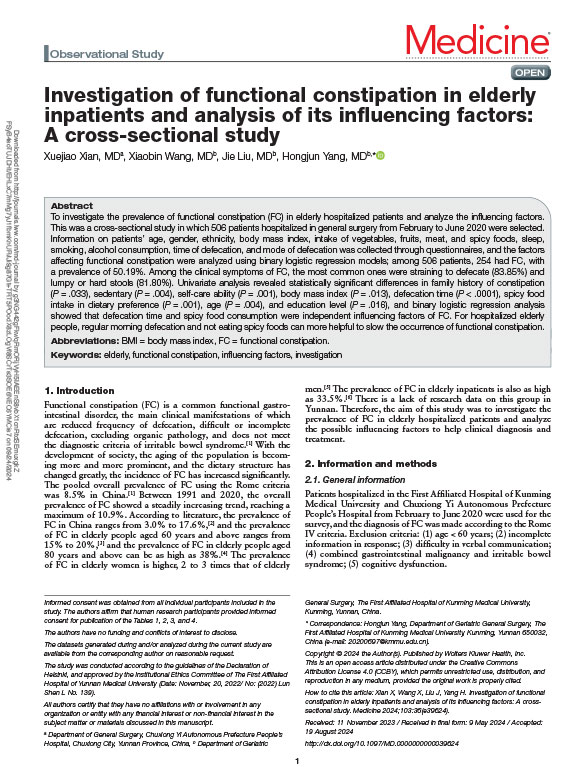Investigation of functional constipation in elderly inpatients and analysis of its influencing factors: A cross-sectional study
September 2024
Abstract
To investigate the prevalence of functional constipation (FC) in elderly hospitalized patients and analyze the influencing factors. This was a cross-sectional study in which 506 patients hospitalized in general surgery from February to June 2020 were selected. Information on patients’ age, gender, ethnicity, body mass index, intake of vegetables, fruits, meat, and spicy foods, sleep, smoking, alcohol consumption, time of defecation, and mode of defecation was collected through questionnaires, and the factors affecting functional constipation were analyzed using binary logistic regression models; among 506 patients, 254 had FC, with a prevalence of 50.19%. Among the clinical symptoms of FC, the most common ones were straining to defecate (83.85%) and lumpy or hard stools (81.80%). Univariate analysis revealed statistically significant differences in family history of constipation (P = .033), sedentary (P = .004), self-care ability (P = .001), body mass index (P = .013), defecation time (P < .0001), spicy food intake in dietary preference (P = .001), age (P = .004), and education level (P = .016), and binary logistic regression analysis showed that defecation time and spicy food consumption were independent influencing factors of FC. For hospitalized elderly people, regular morning defecation and not eating spicy foods can more helpful to slow the occurrence of functional constipation.

